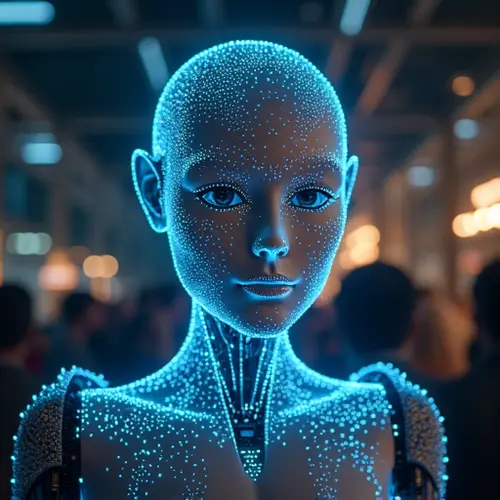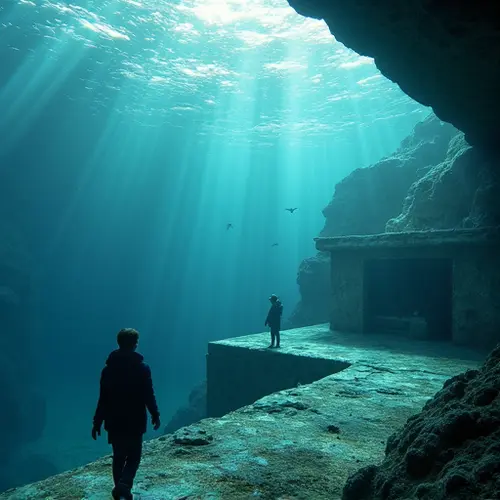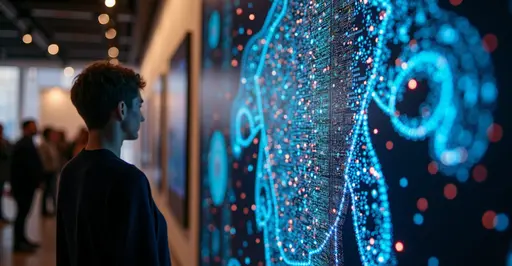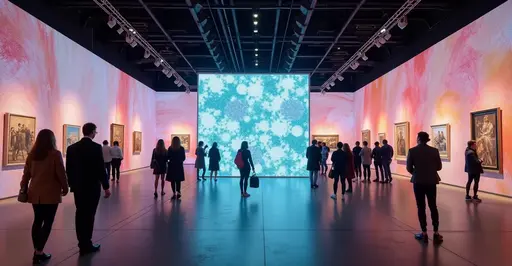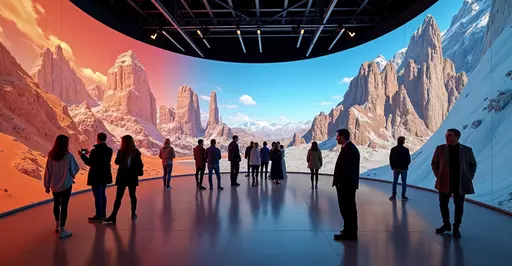
Art World Enters New Era with Virtual Exhibition
The Global Art Biennale has announced a revolutionary shift to a completely digital format for its 2025 edition, leveraging cutting-edge augmented reality (AR) and virtual reality (VR) technologies. This groundbreaking move allows worldwide audiences to experience curated artworks through immersive digital platforms, eliminating geographical barriers for the first time in the event's 130-year history.
Technological Innovation Takes Center Stage
Participants will navigate virtual gallery spaces using VR headsets or AR-enabled smartphones, interacting with artworks through:
- Holographic projections of sculptures
- 3D-rendered installation walkthroughs
- Live artist interactions via avatars
- Multi-user collaborative spaces
Biennale director Clara Rossi stated: "This isn't just streaming art online. We're creating parallel digital realities where visitors can experience scale, texture, and spatial relationships indistinguishable from physical presence."
Global Accessibility and Sustainability
The digital transition addresses longstanding criticism about the exclusivity of major art events. Students from Nairobi, collectors in Buenos Aires, and enthusiasts across Asia can now participate equally. Early data suggests registration from 142 countries, with special accessibility features for visually impaired audiences.
Environmental impact studies project an 89% reduction in carbon emissions compared to traditional biennales. "We're preserving cultural exchange while protecting the environments that inspire artists," noted sustainability coordinator Kenji Tanaka.
Artist Perspectives and Technical Backbone
Participating artists receive customized 3D scanning kits to digitize their works. Brazilian sculptor Ana Silva shared: "Seeing my marble pieces rendered with subsurface light scattering in VR brought tears to my eyes. This captures nuances photographs never could."
The platform runs on decentralized servers using blockchain verification to ensure artwork authenticity and royalty distribution. Technical director Markus Vogel confirmed: "Each digital artwork has an immutable certificate of provenance, solving long-standing issues in digital art collection."
Future Implications
While physical venues like the Venice Biennale continue (next Art Biennale scheduled for 2026), this digital iteration creates new possibilities:
- Permanent virtual galleries extending beyond event dates
- AI-curated personalized exhibition tours
- Cross-biennale collaborations previously logistically impossible
The 2025 Global Digital Biennale opens October 24, with free basic access and premium VR experiences available through partnered cultural institutions worldwide.

 Nederlands
Nederlands
 English
English
 French
French
 Deutsch
Deutsch
 Espaniol
Espaniol
 Portugese
Portugese





